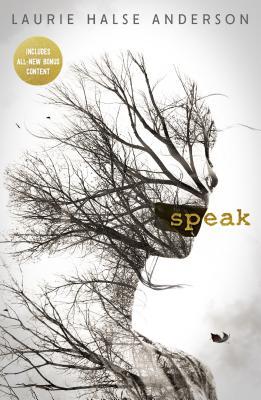Revenge of the Sluts / Natalie Walton / Book Review
REVENGE OF THE SLUTS
When explicit photos of seven high school girls are anonymously forwarded to the entire student body at St. Joseph's High School, Eden Jeong is on the case.
An executive editor for the student newspaper The Warrior Weekly and a senior herself, Eden knows this is likely to be the biggest investigation of her entire student career.
But the investigation proves tricky. The girls are unwilling to talk, and the administration is less-than-excited about Eden's incriminating exposé. The hands of the police are tied since none of the girls involved are minors. With all this pushback, Eden buckles down for the investigation of a lifetime.
An executive editor for the student newspaper The Warrior Weekly and a senior herself, Eden knows this is likely to be the biggest investigation of her entire student career.
But the investigation proves tricky. The girls are unwilling to talk, and the administration is less-than-excited about Eden's incriminating exposé. The hands of the police are tied since none of the girls involved are minors. With all this pushback, Eden buckles down for the investigation of a lifetime.

PROS
| Tackling Tough Issues | The non-consensual sharing of explicit photos may be a well-known problem, but it is still a problem. This is just the type of problem that we as a society like to push under the rug, especially because it is a problem that primarily affects young women. We like to point fingers at the victims when a "leak" like this happens instead of putting the blame where it belongs. Though the topic may be a little cut-and-dry here in this book, the willingness of Natalie Walton to cover the topic at all is commendable. |
| Systemic Suppression | In the same way that Walton tackles a tough and relevant issue, she also exposes that way that the powers-that-be (in this case, the school administration) try to cover up any complicity. The school tries to distance itself from the problem, though the photos were shared on the school server. An administration cover-up is only too believable in the current climate where schools are ill-prepared to handle a generation of students who are more exposed (and more exposable) than any previous generation due to the influence of social networking. Though this book is again heavy-handed in examining the ways a school may avoid complicity, the issue is still poignant. |
| Level-headed Lead | Protagonist Eden Jeong and her newspaper compatriots are incredibly rational in their approach to the story, to the girls, and to all the little steps they need to accomplish writing an exposé. It is nice to have a protagonist who isn't making stupid decisions just to complicate the plot all the time, as so often happens in contemporary YA that centers around high school drama. |
CONS
| This book is rife with long paragraphs that "explain" the situation in matter-of-facts terms. I went back and forth at the beginning about whether this dry narrative style was a good thing. After all, narrator Eden is a journalist. It makes sense that she would break down her narrative in this manner. However, the dry prose style is ultimately distracting. It feels consistently too "info-dump"-y for a proper narrative. This book is not, after all, a news article, and it shouldn't read like one. The ultimate effect of the narrative style was to make the book feel a little too much like reading bad fanfiction--that is, the writing feels immature and unedited. | Journalistic Style |
| This book presents itself as being liberating for the young women who have been exposed. The exposure itself isn't liberating, of course, but the comradery and modes of revenge to come are supposed to be. While this may be the goal, the end result falls far short of the aim. Eden's level-headedness, while refreshing from a YA perspective, is kind of disgusting in this narrative. Eden can be abrasive, rude, and standoffishly "mature" in the face of the highly-invasive investigative story she is working on. Her insistence on examining the girls' pictures at the start is entirely unnecessary for the story, and this action is incredibly violating for someone claiming to be on the same side as the victims. There needs to be some nuance and some humanity in the way the girls are handled, and Eden certainly doesn't show any. She ultimately badgers a bunch of girls who have been wounded until they talk to her--which is not okay. | Violating, Not Liberating |
| The dialogue in this book is consistently inconsequential, vague, undirected, and entirely too casual. It is not purposeful enough to be properly included in a narrative. A good editor could have made things snappy, but alas, the editorial work here seems to have been lacking. Readers don't need every "hello" and "goodbye" that happens. Every little detail in the conversation isn't necessary, even if dialogue is perhaps more true-to-life like that. Ellipses and paraphrases are a writer's friend. They are crucial. Otherwise, the focus becomes lost. | Bad Dialogue |
Rating
⭐
1/10
Those who appreciated Laurie Halse Andersen's hard-hitting topic piece Speak should take a look at this updated narrative for the contemporary day. Anyone who enjoyed the journalist lead of Joan Bauer's Peeled should take a look at the hard-hitting journalist in this new piece.


|
Details
|
Note: I was provided with an ARC by the publisher through Netgalley in exchange for an honest review. All opinions here are my own. |
.jpg)

1/10. Must be truly terrible
ReplyDelete